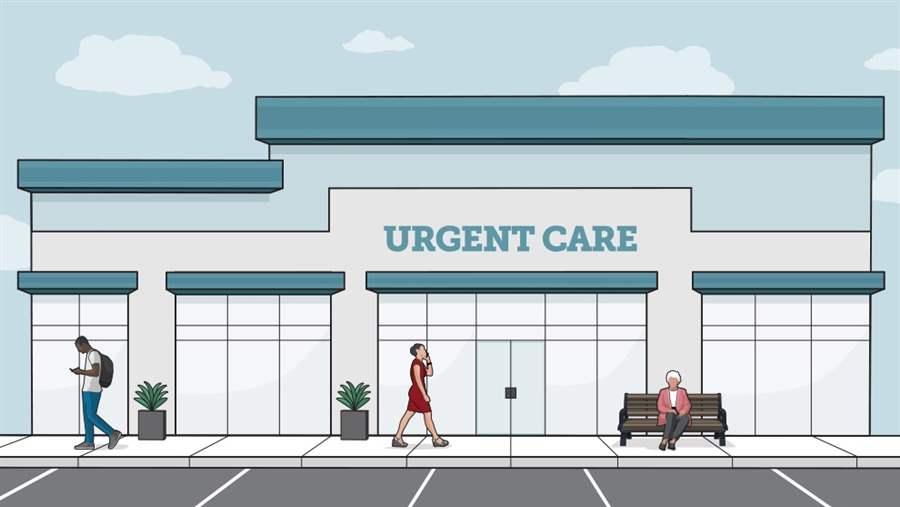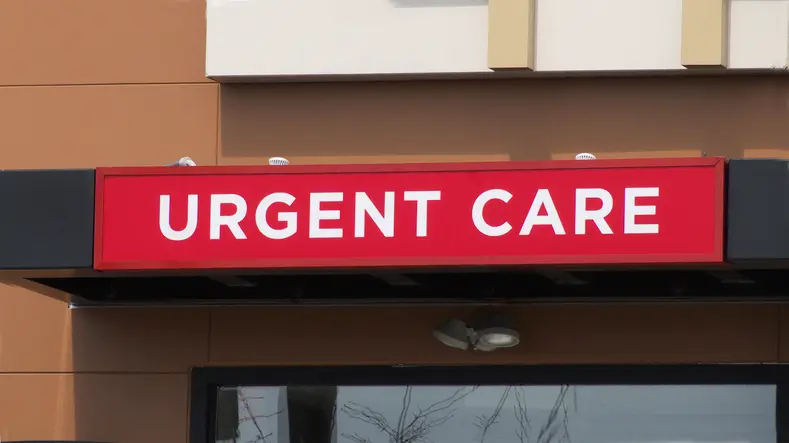Understanding the Importance of Urgent Treatment Solutions for Non-Life-Threatening Medical Issues
The relevance of immediate care services for non-life-threatening clinical issues can not be overemphasized, specifically in today's medical care landscape. By comprehending the advantages of immediate care, such as lowered wait times and cost performance, one can better appreciate their role in client wellness monitoring.
What Is Urgent Care?
Urgent care refers to a category of medical solutions created to attend to non-life-threatening problems that need instant interest but do not require a visit to the emergency clinic. These facilities give a bridge in between health care and emergency solutions, using obtainable health care options for people experiencing acute clinical problems, such as small cracks, sprains, infections, or serious health problems that emerge unexpectedly.

The scope of solutions offered by immediate care facilities can differ yet typically consists of therapy for common conditions like colds, flu, and allergies, along with small injuries (urgent care). In addition, numerous urgent treatment centers supply preventative services, such as inoculations and physical examinations, to deal with more comprehensive health and wellness requirements. By supplying a convenient alternative for immediate clinical problems, these facilities play a vital duty in the healthcare continuum, guaranteeing that patients receive suitable treatment when they need it most
Advantages of Urgent Care Services
Many people discover that utilizing immediate treatment services offers significant advantages over traditional emergency clinic check outs or awaiting a primary care appointment. One key advantage is the minimized wait times. Immediate care facilities commonly have much shorter wait durations, allowing patients to obtain timely medical interest when they require it most. This expedited care is specifically helpful for non-life-threatening conditions that call for prompt treatment.
Another advantage is the prolonged hours of operation. Many urgent treatment facilities are open evenings and weekends, accommodating individuals that might not have the ability to see their health care physician throughout regular office hours. This flexibility makes it much easier for patients to access treatment at their ease.
Additionally, immediate care solutions frequently provide an affordable option to emergency situation spaces. When seeking treatment for small disorders at immediate treatment facilities rather than healthcare facility emergency divisions., clients frequently deal with lower co-pays and overall expenses - urgent care.
Last but not least, immediate care facilities are outfitted to deal with a variety of non-life-threatening problems, offering a broad variety of services under one roof. This detailed method not only enhances the treatment process however also boosts individual contentment by supplying efficient and prompt care.
Usual Conditions Dealt With
What kinds of non-life-threatening conditions can patients expect to obtain treatment for at immediate treatment facilities? Urgent care centers are geared up to manage a large array of common clinical issues that call for prompt focus however do not pose an instant hazard to life. These facilities commonly deal with conditions such as minor fractures, sprains, and stress, giving important take care of injuries that take place during everyday tasks or sporting activities.
In addition, clients often seek therapy for respiratory infections, consisting of colds, flu, and respiratory disease, where prompt treatment can relieve symptoms and avoid issues. Skin disease such as breakouts, insect attacks, and small burns are additionally frequently resolved, as prompt care can reduce discomfort and lower the threat of infection.

Comparing Urgent Care and Emergency Clinic

One substantial difference waits times; urgent care facilities generally have shorter wait times contrasted to emergency clinic, which can be congested with more vital instances. This effectiveness permits individuals to obtain timely therapy for their disorders.
From a monetary viewpoint, immediate treatment brows through often tend to be cheaper than emergency clinic visits. Insurance coverage copays and out-of-pocket expenses are typically lower at immediate treatment facilities, making them an extra economical read selection for non-emergency scenarios.
Exactly How to Choose an Urgent Treatment Facility
Picking the appropriate urgent treatment facility can dramatically boost the top quality of treatment received during a non-life-threatening medical concern. When choosing an urgent treatment center, numerous key elements should be thought about.
First, assess the center's certification and licensing. Search for centers that are recognized by acknowledged companies, as this suggests adherence to high quality criteria. Next, examine the series of solutions supplied. Some immediate care centers concentrate on details areas, while others give thorough look after various medical problems.
Furthermore, consider the location and hours of operation. A comfortably located center with extensive hours can be vital for prompt treatment. It's also advisable to inspect the center's delay times and patient reviews, which can supply understandings into the general individual experience.
Verdict
Finally, immediate treatment solutions play an important duty in resolving non-life-threatening medical concerns efficiently. By supplying immediate focus for various conditions, these facilities improve patient accessibility to prompt treatment while decreasing the strain on emergency situation spaces. The benefits of immediate treatment, including extended hours and reduced expenses, make them a beneficial choice for individuals seeking timely therapy. Inevitably, comprehending browse around this web-site the significance of immediate treatment facilities adds to improved healthcare monitoring and client fulfillment.
 By supplying a hassle-free alternative for urgent medical concerns, these facilities play an important function in the health care continuum, making sure that individuals get suitable treatment when they need it most.
By supplying a hassle-free alternative for urgent medical concerns, these facilities play an important function in the health care continuum, making sure that individuals get suitable treatment when they need it most.Numerous individuals discover that using immediate care solutions gives substantial advantages over traditional emergency situation room visits or waiting for a main treatment appointment. Lots of urgent care centers are open nights and weekends, accommodating people who might not be able to see their primary treatment doctor during regular workplace hours. Immediate care facilities are designed to attend to non-life-threatening conditions, such as minor fractures, infections, and diseases, supplying a practical alternative to emergency spaces for those in requirement of instant treatment. Some immediate care facilities specialize in details areas, while others offer thorough treatment for numerous medical problems.